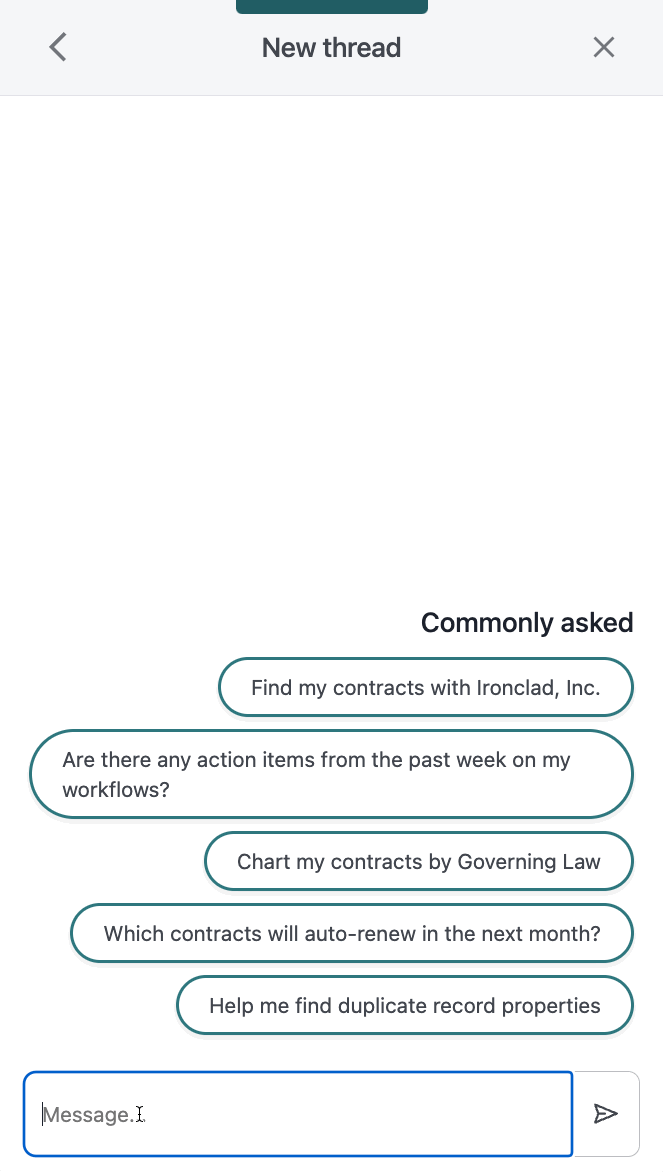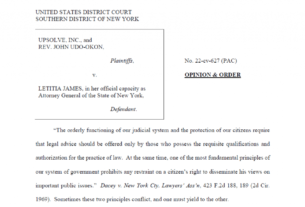The contract management company Ironclad today announced plans to launch a chat interface for complex contract analysis that it says will open a window into the black box of artificial intelligence by showing users the steps it took to come to a conclusion.
Ironclad also today introduced an open-source visual programming environment for building with generative AI and announced other new AI features and product updates.
The chat interface, called Ironclad Contract AI, or CAI — which happens to be the name of Ironclad’s cofounder and chief architect Cai GoGwilt — uses AI agents to break down complex, multi-step analyses into subtasks, and then using those subtasks to inform the next set of tasks.
It will launch in beta in October. Those interested can sign up now for the waitlist.
> Learn more about Ironclad in the LawNext Legal Technology Directory
Where most generative AI is a black box, CAI is an open book, said Ironclad CEO and cofounder Jason Boehmig.
 “The most legal chatbots have been able to do is return a raw list of results, which still require in-depth analysis by a lawyer. CAI is able to comb through a corpus of contracts and actually do the reasoning required to answer almost any contract-related question — showing you the steps it took to reach that conclusion — and handing that analysis back to your legal team. Where most generative AI is a black box, CAI is an open book.”
“The most legal chatbots have been able to do is return a raw list of results, which still require in-depth analysis by a lawyer. CAI is able to comb through a corpus of contracts and actually do the reasoning required to answer almost any contract-related question — showing you the steps it took to reach that conclusion — and handing that analysis back to your legal team. Where most generative AI is a black box, CAI is an open book.”
In an example provided by Ironclad, a user queries CAI, “For the last 5 sales orders, analyze their seat counts and break down by type.” As CAI prepares the answer, it shows the steps it is taking:
- Pulling up six types of contracts to analyze (such as Order Form, Enterprise Services Agreement, Data Processing Addendum).
- Reviewing data in those contracts for four properties: end date, expiration data, services end date, and agreement expiration date.
- Looking for key terms in contracts (such as expire, renew, 120 days, January 5, 2024).
It then provides the answer, a breakdown of seat counts by type (such as “Administrator Seat: 21,” “Standard Seat: 206”).
In another example, the user asks CAI to provide a chart of all contracts by governing law. In just moments, it shows a bar graph and count by state.
GoGwilt said that CAI can handle standard questions, such as identifying the total value of contracts in a certain jurisdiction, but can also answer more complex contracting questions, “in many cases providing answers you may have thought were not possible.”
“For instance, our team asked CAI to justify a pay raise — and it was able to not only comprehend the question, but deliver a compelling argument based on contract turnaround times, TCV metrics, number of contract terms, and more,” GoGwilt said.
Open Source Programming Environment
Also today, Ironclad announced the launch of Rivet, a collaborative, open-source visual programming environment for building generative AI products, fully available to the public.
Rivet was built, in part, to expedite the development of CAI and enable step-by-step visibility into its process and analysis within the tool, Ironclad said. It allows developers to visualize and collaborate on building complex chains of logic, test and iterate on those products, and display the execution of the chain in real-time.
Ironclad said it is making Rivet available to the public after beta testing it for five months with partners such as AssemblyAI, Attentive, Bento, Willow, and Sourcegraph.
Other New Features
Ironclad today also announced new features focused on uploading contracts to its repository more quickly and easily, and extracting more data from those contracts. These include:
- Import contracts via email. Forward contracts via email to a designated email address and Ironclad’s AI-powered Smart Import will automatically tag, index, and store those contracts in the repository.
- Extract data from legacy contracts. Users will be able to tag and extract metadata from contracts that were uploaded to the repository without Smart Import.
- Automatically identify discrepancies between metadata and contracts. Ironclad AI will detect whether metadata needs to be updated to reflect changes to a contract, whether from you or your counterparty. Users no longer need to manually track and compare metadata to contract text, so your process can be faster than ever.


